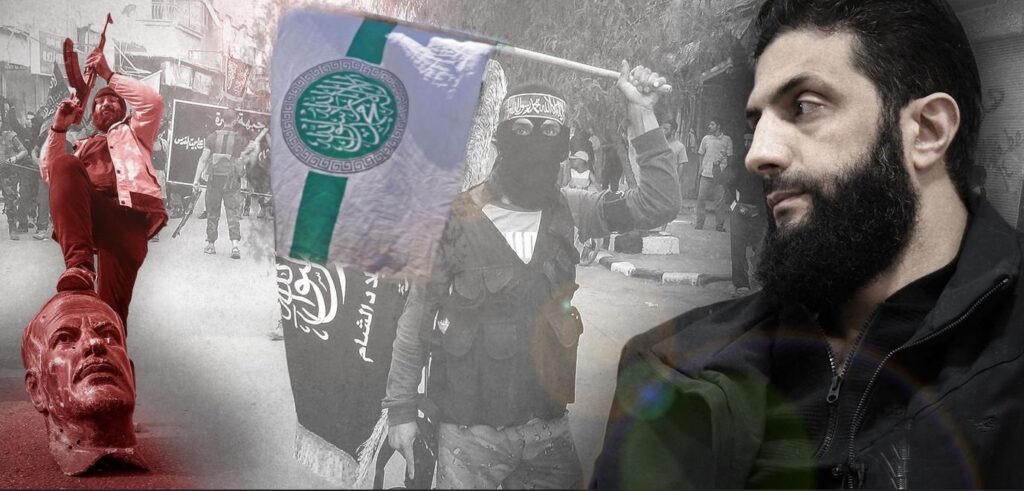
L’unité turco-kurde-arabe ne suffit pas ; la solution réside dans une alliance Turquie-Russie-Iran-Chine. Le coût d’une stratégie erronée est lourd. Le temps presse.
Lors de la réunion du groupe parlementaire du Parti AK qui s’est tenue le 21 janvier 2026, notre président Recep Tayyip Erdoğan a déclaré : «Ce qui importe, ce n’est pas la fragmentation en petits États, mais l’union et le renforcement de notre force collective. Turcs, Kurdes et Arabes, comme par le passé, s’uniront, agiront d’une seule voix, regarderont dans la même direction et résoudront ensemble les problèmes de notre région. Nous avons un seul et même refuge : la fraternité islamique».
De même, le journal Yeni Şafak titrait le 22 janvier 2026 : «Le parapluie commun : les Frères musulmans», en se basant sur le même discours.
«L’ombrelle islamique» ne suffit pas
L’unité turco-kurde-arabe mise en avant par notre Président est juste en ce qu’elle souligne la solidarité et la lutte commune des peuples ; cependant, elle s’avère insuffisante sur le plan stratégique. Cette unité, à elle seule, ne constitue pas une solution face aux menaces centrées sur les États-Unis et Israël qui pèsent sur la Turquie. Une stratégie efficace face à la menace mondiale à laquelle nous sommes confrontés ne peut se fonder uniquement sur un «parapluie islamique» basé sur l’unité populaire.
Ceux qui se battent ne voient pas la solution dans «l’ombrelle islamique»
Examinons la situation de ceux qui combattent en première ligne. Les pays islamiques engagés dans ces combats ne fondent pas leurs stratégies sur les principes islamiques.
La Palestine s’allie à la Russie et à la Chine.
L’Iran s’allie à la Russie et à la Chine.
Le Venezuela résiste aux côtés de l’Iran, de la Chine et de la Russie.
Au sein de la résistance palestinienne, le Hamas sunnite se tient côte à côte avec l’Iran chiite.
En Palestine et en Iran, les branches sunnite et chiite de l’islam nouent des alliances avec la Russie et la Chine et les mettent en œuvre dans les faits.
Bien que rarement mentionnés nommément, les Perses figurent aujourd’hui parmi les principales forces qui combattent l’Amérique par le biais de la République islamique d’Iran.
Ce ne sont pas les alliances religieuses ou sectaires, mais les États-nations qui résistent à l’impérialisme qui remportent le succès. Ces pays sont des partenaires stratégiques non seulement en matière de sécurité, mais aussi d’économie.
Parce qu’ils se trouvent au cœur des menaces, directement dans le viseur des armes américaines et israéliennes, ils adaptent leurs stratégies en conséquence. Lorsque la situation dégénère en guerre ouverte, ils constatent clairement que la fraternité islamique, à elle seule, ne suffit pas. Cette réalité est instructive pour nous tous.
L’unité turco-kurde-arabe ne peut pas, à elle seule, empêcher les menaces
L’unité turco-kurde-arabe est indéniablement précieuse et nécessaire. Toutefois, son seul établissement est insuffisant. En tant que parti Vatan, nous ne nous opposons pas à cette unité ; néanmoins, il est essentiel d’en reconnaître les limites et l’incomplétude afin d’élaborer une stratégie adéquate.
Cette proposition ne correspond pas à la stratégie globale dont la Turquie a besoin. Cette unité, à elle seule, ne saurait endiguer les menaces mondiales qui s’accumulent contre nous.
L’unité turco-kurde-arabe ne peut à elle seule contrer les menaces américano-israéliennes-grecques en Méditerranée orientale.
Elle ne peut pas résister aux canons américains positionnés sur les îles de la mer Égée.
Elle ne peut obtenir la reconnaissance internationale de la RTCN en tant qu’État.
Elle ne peut pas non plus garantir la sécurité énergétique ni attirer des capitaux d’investissement dans l’économie turque.
La seule solution : une alliance entre la Turquie, la Russie, l’Iran et la Chine
La solution stratégique est l’alliance Turquie-Russie-Iran-Chine.
Cette alliance est la seule solution capable de libérer les Turcs, les Kurdes et les Arabes de la pression et de l’hégémonie impérialistes.
Dans le contexte actuel, la Turquie ne peut se défendre sans la Russie, la Chine et l’Iran. Dès lors que le débat se réduit à la seule notion de «fraternité islamique», ces pays sont exclus. Les formules qui excluent la Russie, l’Iran et la Chine finissent par converger vers un rapprochement avec les États-Unis.
Devlet Bahçeli a proposé l’alliance Turquie-Russie-Chine-Iran comme unique solution face aux menaces américano-israéliennes. Le parti Vatan défend cette alliance depuis 40 ans. L’alliance Turquie-Russie-Chine-Iran représente une stratégie rationnelle qui évalue avec justesse la menace qui pèse sur la Turquie et l’équilibre des pouvoirs mondiaux face à cette menace. Elle est également le seul remède capable de dissuader toute agression dans notre région et d’empêcher toute escalade susceptible de dégénérer en conflits de grande ampleur, voire en guerre mondiale.
Un gouvernement national des producteurs est à l’ordre du jour
Les déclarations de Bahçeli – «nous ne sommes pas un partenaire de puissance, mais un partenaire d’alliance» – prennent tout leur sens sur cette base stratégique.
Le coût d’une stratégie erronée est élevé. Le temps presse. Face à l’échec du plan américano-israélien «Second Israël» en Syrie, la Turquie doit agir avec détermination, définir la stratégie adéquate et la mettre en œuvre sans délai.
Un gouvernement national des producteurs, capable de surmonter les défis sécuritaires et économiques, d’assurer l’unité nationale et de mener la révolution productive grâce à une stratégie globale établissant l’alliance Turquie-Russie-Chine-Iran, est une nécessité urgente.
La Turquie peut surmonter les défis à venir grâce à un gouvernement national des producteurs formé par le parti AK, le MHP, le CHP de Kemal Kılıçdaroğlu et le parti Vatan.
En tant que parti Vatan, nous continuerons d’intensifier ces efforts tant sur le plan international, sur le front eurasien, que sur le plan intérieur, au sein des forces nationales de Turquie.





